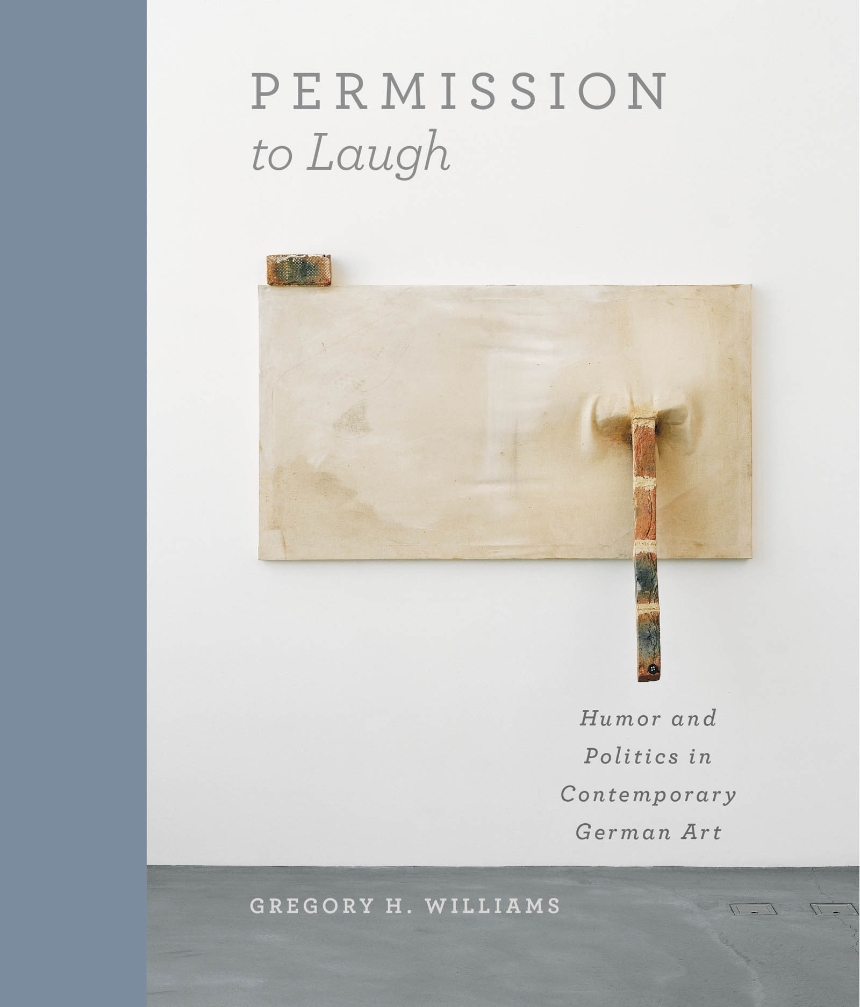Permission to Laugh
Humor and Politics in Contemporary German Art
Permission to Laugh explores the work of three generations of German artists who, beginning in the 1960s, turned to jokes and wit in an effort to confront complex questions regarding German politics and history. Gregory H. Williams highlights six of them—Martin Kippenberger, Isa Genzken, Rosemarie Trockel, Albert Oehlen, Georg Herold, and Werner Büttner—who came of age in the mid-1970s in the art scenes of West Berlin, Cologne, and Hamburg. Williams argues that each employed a distinctive brand of humor that responded to the period of political apathy that followed a decade of intense political ferment in West Germany.
Situating these artists between the politically motivated art of 1960s West Germany and the trends that followed German unification in 1990, Williams describes how they no longer heeded calls for a brighter future, turning to jokes, anecdotes, and linguistic play in their work instead of overt political messages. He reveals that behind these practices is a profound loss of faith in the belief that art has the force to promulgate political change, and humor enabled artists to register this changed perspective while still supporting isolated instances of critical social commentary. Providing a much-needed examination of the development of postmodernism in Germany, Permission to Laugh will appeal to scholars, curators, and critics invested in modern and contemporary German art, as well as fans of these internationally renowned artists.
Reviews
Table of Contents
Preface
Chapter 1
Introduction: The “Cultural Turn” in 1970s West Germany
Chapter 2
Laughter in Spite of History
Chapter 3
The Public Arrival of Witz
Chapter 4
Rapid-Fire Jokes: Werner Büttner, Martin Kippenberger, and Albert Oehlen
Chapter 5
Protracted Wit: Isa Genzken, Georg Herold, and Rosemarie Trockel
Chapter 6
In-Jokes and Out-Jokes: Constructing Audiences
Chapter 7
Conclusion: Humor in Germany after the Wall
Notes
Bibliography
Index
